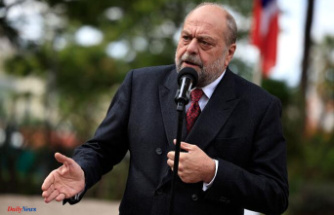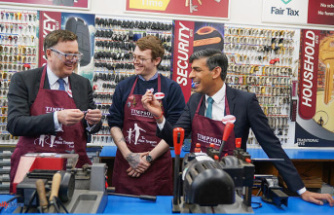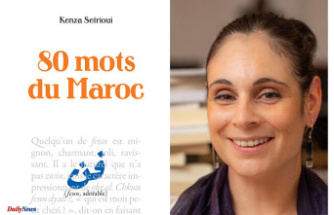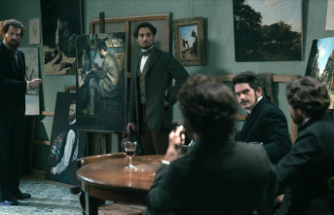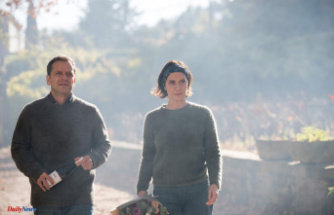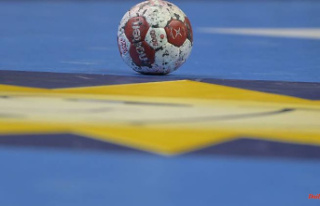What keeps drawing the English king to the mountains and forests of Transylvania? Our author visited Charles' private retreat in Romania and found at least three reasons: wild flowers, brown bears - and the bromance with a distant relative.
"Look here," calls out the man known as "the Count." Tibor Kálnoky slides one hand down the walking stick and supports himself with the other until he is kneeling deep in the grass. Then he closes his eyes and sniffs devoutly at a flower: "The fragrant ordeal!"
"It only exists in Transylvania," says Kálnoky. "At least only in this quality," adds Raluca Olaru, a young Romanian who also speaks German. She accompanies us because she makes cosmetics from wild plants, so she knows her stuff. "Call me herbal witch," she had said when they met.
The Count has invited you to a hike. It leads through the forests and over the meadow hills of Zalánpatak dotted with colorful flowers. The tiny village where his family ran a glass workshop 300 years ago is located in the middle of Romania. It is that patch of Europe surrounded by the Carpathian Mountains that has been called "Transylvania" for centuries. Nothing in the sunlight reminds us of the howling of the dogs and wolves that we heard during the night. "They want to chase the bears away when they get too deep into the valley," explain the people who live here.
Transylvania has always been considered mysterious and unfathomable - even if everyone knows that garlic has never scared away a vampire in the guest rooms. The saga of Count Dracula, who became an international pop figure at the same time as Santa Claus, is a lure for tourism.
The real attraction lies in the pristine landscapes, in around 300 castles and fortified churches from the late Middle Ages, in countless stork nests that hover over the villages like UFOs made of hay, and certainly also in the stories that entwine around noble families such as the Kálnokys. While the relatively large Hungarian part of the population speaks of "Erdély", Transylvania is "Siebenbürgen" for the much smaller and further west settled German minority: the land of the seven castles.
On our excursion, which lasts more than three hours, we take the same route that the Earl did with the Prince of Wales in May. "Finally he was back!" says Kálnoky, who had waited in vain for the high visitor in 2021.
But the joy was particularly great this time: "Charles not only had his bodyguard and his butler with him, but also the top botanist in the English crown." While Kálnoky is telling this, we walk through a sea of yellow globeflowers and blue meadow sage. They grow out of the ground like symbols - not for the Ukraine 350 kilometers to the north, but for the Székler people, the ancestors of the Kálnoky clan.
Charles, who is not only distantly related to the Count, but also claimed to be a descendant of Prince Vlad III. holds - the historical model of Dracula - can probably be considered the most famous tourist of Transylvania. And because he decidedly wants to be more, he has made the area a kind of adopted home. He has come for a week almost every year since 1998, first as a guest with the Count in the village of Miklósvár: in an apartment that can be rented as "Prince's Suite" (maybe renamed "King's Suite"). In addition, he has developed a remarkable dual strategy of bringing the big wide world to Romania and escaping it there at the same time.
In 2006, Prince Charles, now king, bought a farm in the village of Viscri, which in German-Weisskirch means, has long been a UNESCO World Heritage Site and, with its colorful renovated farmhouses, clearly stands out from many poor and often orphaned villages in the German-speaking Transylvanian Saxons.
With the help of the prominent advocate, Viscri was able to develop into a mecca for yoga courses and "corporate retreats" in a historical setting. Although Charles runs an organic farm there and will soon be opening a shop with sustainable products, which will also sell Raluca Olaru's cosmetics brand "Hodaia", the Count reveals: "The hype is really not for Charles."
The counter-program is a 17-hectare estate in Zalanpátak that the prince acquired in 2008. It's a place of stillness. Stylistically, Zalanpátak's crown estate is a unique mix of European traditions: with old hand-woven carpets from Turkey, English bathrooms and restored "old German" furniture from the region. Practically it is a rustic hostel and an ideal base for excursions into nature.
When the owner is away, the property sleeps 13 guests in three seven-room houses. The author himself spends the first night in the butler's room and then moves into the prince's room next door. Surrounded by his hiking sticks and straw hats and all sorts of engravings and photographs, such as the young Queen Elizabeth II and Charles' favorite castle Birkhall, the first night on the handmade wool mattress of the future King of England is so peaceful and comfortable that it alone is a motivation to extend the stay by four more days.
With the exception of the espresso machine, Charles' Romanian refuge seems rather "pre-modern". Or to put it postmodern: like a film set, for example from "Game of Thrones". Charles found the property with the help of the Count and had it renovated - which was recorded in Hungarian on wooden beams. You are, of all places, in the house that was painted blue - a facade color that used to be reserved for serfs in Transylvania. The saying perpetuates the feudal bond of loyalty between the two nobles: "Established for the Duke of Wales by Count Kálnoky in 2009".
In addition to many fireplaces, cozy seating areas and an outdoor hot tub, there are "hot showers", as Raluca emphasizes. This is not a matter of course, considering what Charles is said to have said when Donald Trump's lawyer Rudy Giuliani complained about the conditions in Birkhall: "What did he expect - hot running water?" When the Count tells the anecdote, he laughs out loud.
Since Raluca Olaru only moved into her farm at the other end of Zalánpatak in April, she regularly goes to the Krongut to use the washrooms. People help each other, she says and tells how the prince - at that time still - visited her after the hike in May. He asked for advice on growing rare and healing plants. To say goodbye, he had soaps bought for himself and beard oil for the butler.
Meanwhile, the Count's joy continues on our hike: over the wealth of orchid plants. He repeatedly regrets that Charles arrived and left too early this year and missed a lot. "He has not seen the Pannonian clover or the bug orchid in all their glory."
The reason for the bad timing was world news: Prince Charles had to take his mother's jubilee from his mother on June 4 in London - "on a horse in the glowing midday sun, although he has back problems and no longer likes to sit on horses". In Romania, too, he does not ride or hunt. "Charles comes to find peace and contemplation on hikes," says Kálnoky. However, how exciting the wilderness of Romania can be, we notice for ourselves when fresh imprints of large and small bear paws appear in front of us in the clay and we pick balls of fur from the bushes.
"We've met brown bears several times with Charles," says the count, emphasizing: "From a safe distance." Nevertheless, at these moments the men with the guns stepped out of the background to protect the English heir to the throne. "In situations like this, Charles was usually the only one who didn't get nervous, but above all curious."
By the way, the Count carries a white umbrella with him in case he encounters the bears. "If you open it suddenly, they get scared," he explains. The fact that his ancestors used a bow and arrow for this can also be seen in the Kálnoky family crest: it shows a bear with an arrow in its neck - and commemorates the legendary rescue of a feudal lord.
While Charles' wife Camilla has never been to Transylvania, he will always come back - "even if he is king". 55-year-old Tibor Kálnoky is convinced of that. "As long as we live, we will work for the common purpose in life that we found in Romania." It makes the two brothers in spirit who are committed to what they consider to be worthy of protection in Transylvania as well as in England or Scotland: rural ways of life and manual techniques of a society geared towards subsistence, which is also referred to as "subsistence farming" and no longer has a place in the industrialized mass and consumer society. In Zalánpatak, older people in particular continue to live according to this principle, while most young people move away and go to Germany, for example, as seasonal workers.
In an interview, Charles spoke of the "stable connection between man and nature" and warned that it will disappear forever once the structure breaks. While the King of Insight can only devote himself to model support programs and workshops at home in the UK - for example in his Scottish Dumfries House - he apparently sees in Romania the opportunity to promote balance for the real good and benefit of the population.
According to Kálnoky, the plan is to let the tourist income from the goods in Viscri and Zalánpatak flow back to the people who work and live there. "In 2019 we were ready for the first time," says the Count and takes a break, which he finally fills with reference to the consequences of the Covid pandemic - against which neither the next king of England nor the hardest herb in the Carpathians can do anything can. We'll see when the king goes to Transylvania next.


